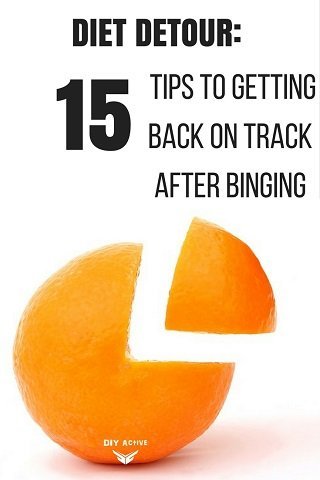How Do You Get Back on Track?
So, you overdid it. You ate too much. We’ve all been there: you ended up binging on anything you could stuff your face with over the weekend. Thankfully, there’s no need to dwell on guilt and regret. You fell off the wagon and made a mistake like the human being that you are. No worries, you can get back on track!
You binged. Now what?
Before you go and have gastric sleeve surgery, try following these tips to get back on track to a healthier you:
- Let it go. Dwelling on a binge will only make it worse and could lead to a pattern of overeating down the road. Move on from guilt and look toward getting your routine under control.
- Don’t starve yourself as punishment. Eating is not a habit you can give up. Depriving the body only triggers your hunger reflex as your body tries to restore the low energy caused by a lack of nutrients. Plus, skipping food following a binge creates the desire to overeat again.
- Don’t weigh yourself. Weight can vary from day-to-day, or even throughout the day, and depends on many factors (e.g., water retention, too much salt, whether you’ve had a bowel movement, etc.). Focusing on the scale only emphasizes your binge and can undermine your efforts.
- Eat foods designed to satisfy. Fiber and fluids (preferably water) will fill you up and help food move through your system. Choices such as vegetables and complex carbohydrates are part of healthy eating, and they win out overreaching for calorie-dense, high-fat fare.
- Forget about alcohol and coffee. Water is the beverage that powers digestion. Alcohol can actually slow the digestive process and while coffee is helpful for a hit of caffeine to counter a food slump, it doesn’t help digestion, either.

- Engage in mindful eating. Mindful eating will help teach you to eat for hunger (not for emotional reasons). A review of relevant studies has shown that the technique of mindfulness improves behaviors, such as binge eating and emotional eating.
- Keep a diet diary. Writing things down has a powerful effect. You become accountable for your habits, especially when you see proof in “black and white.” Keeping track of your daily food intake also helps you evaluate exactly what and when you eat.
- Exercise. Light cardio does more than just burn calories; it gets the blood and food moving through the digestive system. Studies have shown that exercise can also suppress appetite. In addition, ambient movement (like walking a few laps or taking the stairs) burns calories as well as helps you resist food temptation.
- Get enough sleep. A good seven to eight hours of healthy sleep helps you avoid the food cravings caused by fatigue. Sleep-deprived people needing a boost of energy tend to reach for foods high in sugar and fat.
- Get support. Tap into friends or family with whom you can share your quest for good eating and a healthy lifestyle. Whether it’s talking about your eating patterns or emotions, or exercising with the company, it can prove helpful to have a support team.
- Try some new recipes. Healthy eating will be easier when you have different meals you can look forward to trying.
- Plan ahead. It’s easier to stay on track and maintain healthy living when it’s fully ingrained into your routine. Plan and schedule meals for the week, and prep healthy lunches to bring with you to work/school. Also, set aside certain days and times for exercise on your calendar—and don’t back out!
- Take baby steps. After breaking your routine, you may be scrambling to get back on the rails by hurling yourself into any and all changes at once. Simultaneously reinstating all of those changes can be overwhelming, setting you up for repeat failure. Try taking one step at a time and gradually reintroducing them one-by-one. This will help you avoid feeling scattered and defeated, setting you up for success instead.
- Think about how you got off track in the first place and avoid it like the plague. Figure out what may have caused you to detour from your otherwise healthy routine. Were you stressed? Depressed? When you figure out what triggered your fall off the healthy wagon, substitute with something other than food. You could go for a run (highly recommended), write a novel, think of a way to solve world hunger—anything to avoid reaching for that bag of chips.
- Reward yourself. Positive reinforcement goes a long way when trying to achieve any goal. Why should healthy eating be different? Assign mini (and attainable!) milestones, and when they are attained, acknowledge that triumph somehow.
Wrap-Up
By following these tips and tricks, you can boost your binge recovery and embrace a healthier relationship with food. Never beat yourself up for falling off the wagon; simply acknowledge that it happened and take steps to get yourself back on track.
Latest posts by Rory Devlin (see all)
- Physical Brain Health Exercises for a Bigger Brain - December 10, 2023
- Hot Yoga at Home: A Simple Guide - April 4, 2023
- Diet Detour: 15 Tips On How To Get Back On Track - June 9, 2017